Description
Healthy skin mirrors a healthy gut and metabolism. Improper digestion and assimilation results in build up of ‘ama’ or metabolic toxins in the circulating body fluids. Manjishtadi Kashayam tablet is widely used in improving skin health and immunity in a holistic manner.
Kashaya or herbal decoctions harness the healing properties of herbs and roots in a mild and easily absorbable water base. The tablet modification of Manjishtadi Kashayam allows easy transportation and administration, without compromising on its therapeutic benefits.
Psora Herb Oil is useful in skin healing and rejuvenation, boosting the immunity of the skin, recurrent infection, itching and scaling of the skin, hair fall due to dandruff and scalp infections, and preventing remissions in psoriasis and eczema.
- Manjishtadi Kashayam is a synergy of astringent, bitter and cooling herbs and roots that balance the Pitta elements in the system.
- ‘Manjishta’ or Indian Madder is lauded for its blood purifying properties, and facilitating smooth function of the lymphatic system.
- Manjishtadi Kashayam tablet has significant anti-arthritic and anti-inflammatory activity in the gut, skin, bones and joints.
- It purifies blood and lymph in circulation. Encourages cellular metabolism and expulsion of endotoxins.
- Digestive action of the formula breaks down ‘ama’ or disease causing complexes in the body.
- Manjishtadi Kashayam tablet is an excellent remedy for sign and symptoms associated with deranges ‘Rakta’ and ‘Pitta’, which manifest as chronic skin diseases.
- It improves skin health and immunity. It also encourages healing of chronic non-healing ulcers and rashes.
Psoriasis is the result of a sped-up skin production process. Typically, skin cells grow deep in the skin and slowly rise to the surface. Eventually, they fall off. The typical life cycle of a skin cell is one month. In people with psoriasis, this production process may occur in just a few days. Because of this, skin cells don’t have time to fall off. This rapid overproduction leads to the buildup of skin cells. Scales typically develop on joints, such elbows and knees. They may develop anywhere on the body and cover the entire body at times.
2-3 Tablets of Manjishtadi Kashayam twice daily on empty stomach. Consume dissolved in half a glass of lukewarm water for best results.
Take a sufficient quantity of Psora Herb Oil and massage gently onto the affected part. Exposure to mild sunlight is recommended for best results.
MANJISTHA (Rubia cordifolia)
Manjistha or Indian Madder is considered to be one of the best blood-purifying herbs. It is mainly used to break down blockages in the blood flow and remove stagnant blood. Manjistha herb can be used both internally and externally on the skin for promoting skinwhitening. It helps manage acne and pimples by inhibiting the growth of acne-causing bacteria due to its antioxidant property.
HAREETAKI (Terminalia chebula)
Popularly known as Indian walnut for its innumerable benefits or Indian hog plum in English, it is extremely valuable for its role in improving hair health. It is useful for treating scalp infections like dandruff, itching, and hair fall. It also strengthens them from the roots, prevents breakage and loss of hair, and bestows silky soft smooth hair
AMALAKI (Emblica offiicinalis)
Commonly known as the Indian gooseberry, it is high in Vitamin C and natural antioxidants known as flavonoids and polyphenols. When used for hair treatments, it is found to strengthen and condition follicles down to the roots. Amla oil can promote hair growth, reduce dandruff, and prevent the graying of hair.
VIBHITAKI (Terminalia Bellerica)
Known as beach almonds or Bedda nut tree, It is rich in Vitamin C, and other antioxidants that nourish the hair roots. Bibhitaki helps in making the roots of the hair stronger, minimizing hair fall, and preventing premature graying of hair strands.
NEEM (Azadirachta indica)
It is a member of the Meliaceae family and its role as a health-promoting effect is attributed because it is a rich source of antioxidant. It has been widely used in Chinese, Ayurvedic, and Unani medicines worldwide especially in the Indian Subcontinent in the treatment and prevention of various diseases. Neem is considered a boon for mankind by nature. The Use of Neem has been recommended by Ayurveda for a wide range of diseases. Such usage is attributed to its purification effect on the blood. Scientific research on Neem demonstrates it to be a Panacea. It is suggested to be an antibacterial, anthelmintic, antiviral, anticancer, and more importantly Immunomodulatory agent.
GUDUCHI (Tinospora cordifolia)
It is a well-recognized and widely distributed traditional plant that is used successfully in Indian Ayurveda medicine. Guduchi helps increase the effectiveness of protective white blood cells which fight infection. The herb also augments immune responses to infections by influencing various immune effector cells and ensures early recovery. It is effective in Infections in the respiratory system, skin, and soft tissues, Infected wounds, especially in diabetic conditions and immune -compromised conditions.
DEVADARU (Cedrus deodara)
Himalayan Cedar is very effective in neurological disorders, asthma, pruritus, infested wound. Devadaru is also effective in arthritis and headache.
HARIDRA (Curcuma longa)
Haridra is also called known as Curcuma longa. The anti-inflammatory and antioxidant properties of Haridra assist in preventing the progression of diabetes-related changes in organs like the kidneys, retina, nerve cells and minute blood vessels in the body .
VACHA (Acorus calamus)
According to Ayurveda, taking Vacha along with honey on a daily basis helps manage speech disorders due to its Vata balancing and Medhya properties. It’s consumption also helps in the management of cough by promoting the removal of sputum from the air passages due to its expectorant activity. Vacha also helps improve memory by fighting against cell damage caused by free radicals due to its antioxidant property. This improves behavioral changes, memory and mental performance as well. It also helps remove kidney stones by increasing the production of urine due to its diuretic activity.
TIKTA (Andrographis panniculata)
Andrographis has numerous traditional uses. In Ayurvedic medicine, it is used as an alternative, (supporting the routes of detoxification), stomachic (supporting digestion), and as an immune supporter.
SVETA KUTAJA – Pala Indigo plant or Dyer’s Oleander (Wrightia tinctoria)
Sweet Indrajao is a small, deciduous tree, which is found in the Indian states of Rajasthan, Tamil Nadu and Madhya Pradesh.
A poultice made from the leaves, which has astringent, anti-inflammatory and anti-bacterial properties, is effective in treating various skin disorders. It is also a potent anti-dandruff agent, which is beneficial in treating scalp disorders.
NALIKERA TAILA – Coconut oil (Cocos nucifera)
Octanoic acid, which has anti-fungal properties, is one of the major active constituents of Coconut. It also contains vitamins E and K and minerals such as iron. Polyphenols, such as gallic acid, gives the fruit its fragrance and taste. Because of its inherent anti-fungal and anti-bacterial properties, Coconut oil is an extremely popular ingredient in haircare and skincare products.


 Sign In
Sign In Cart
Cart 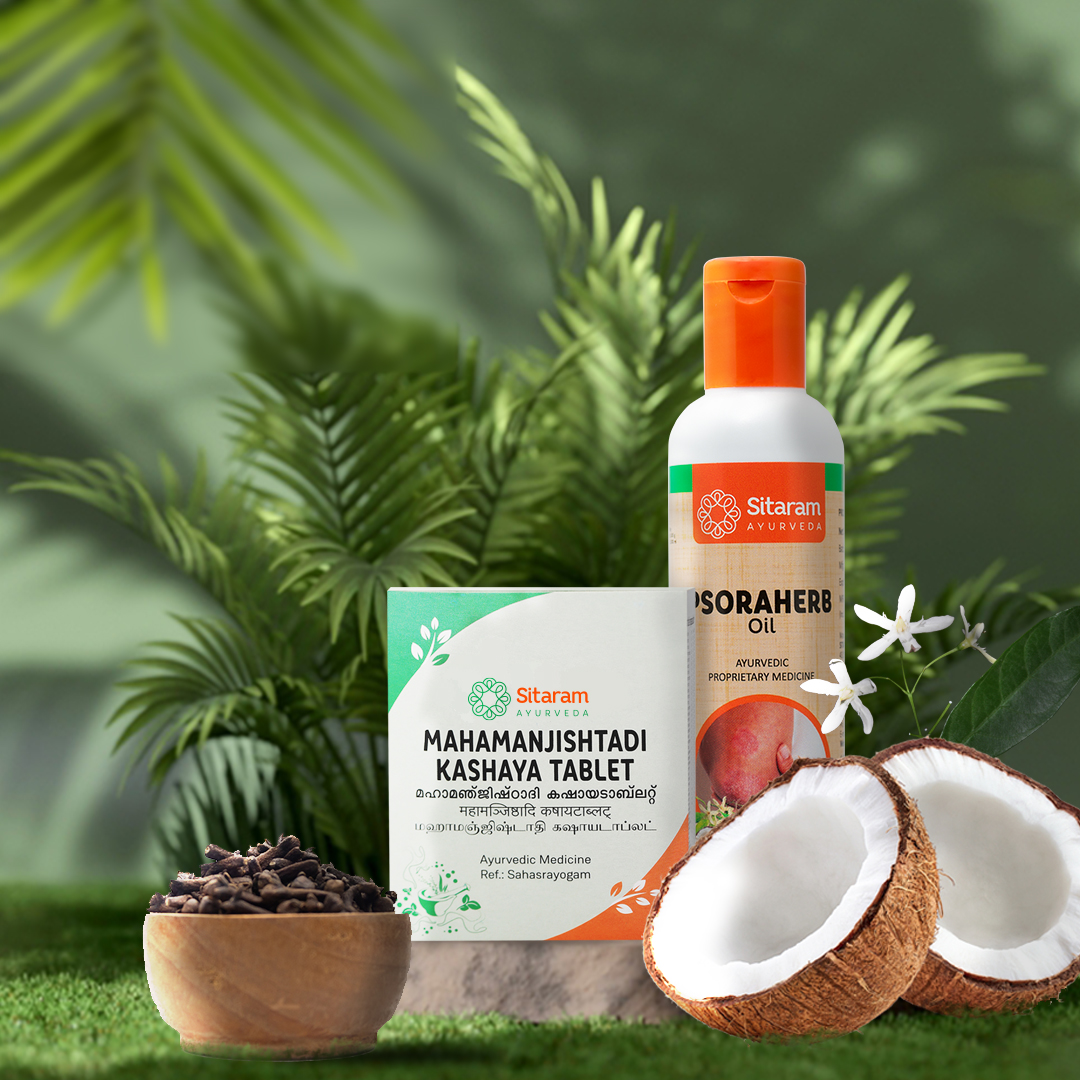
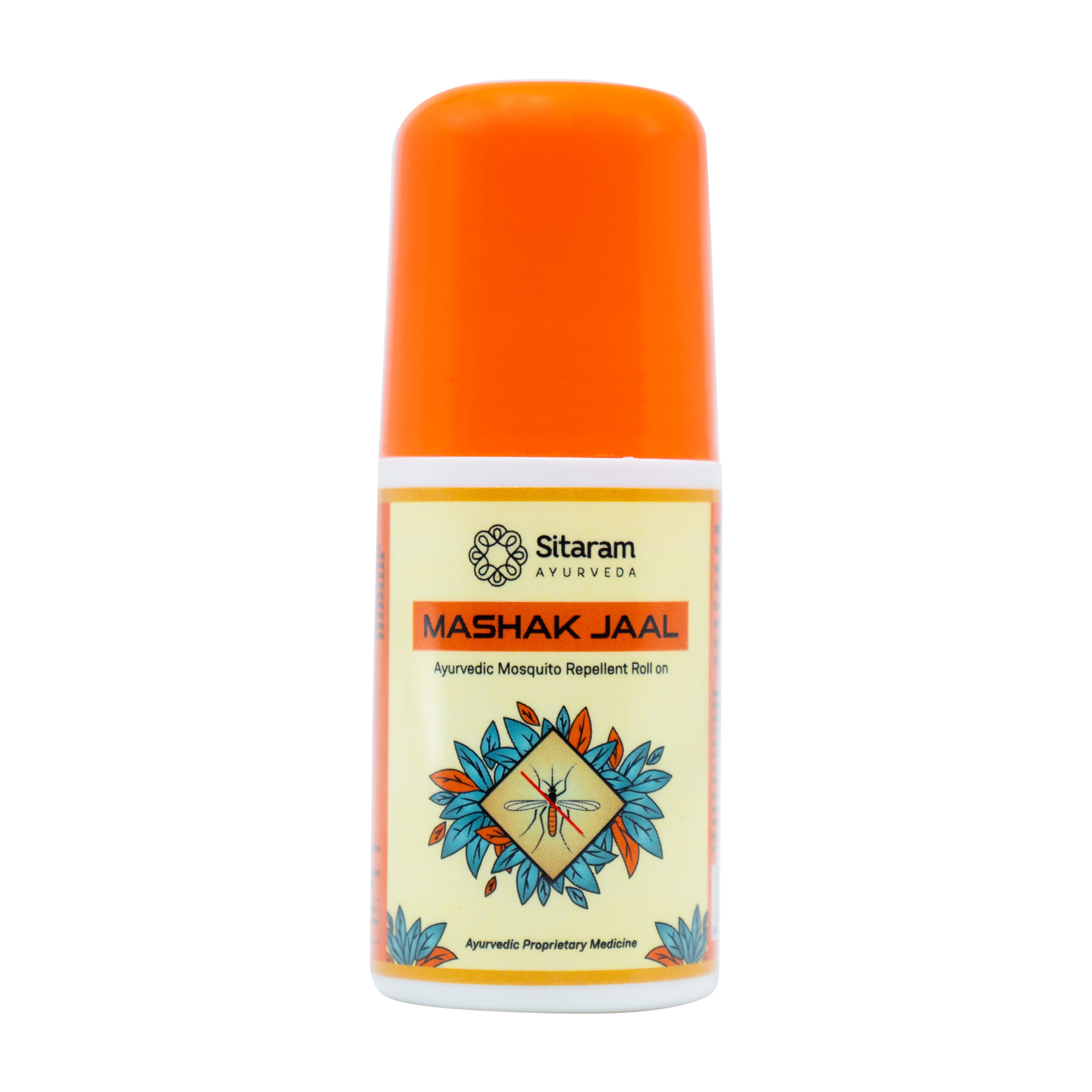
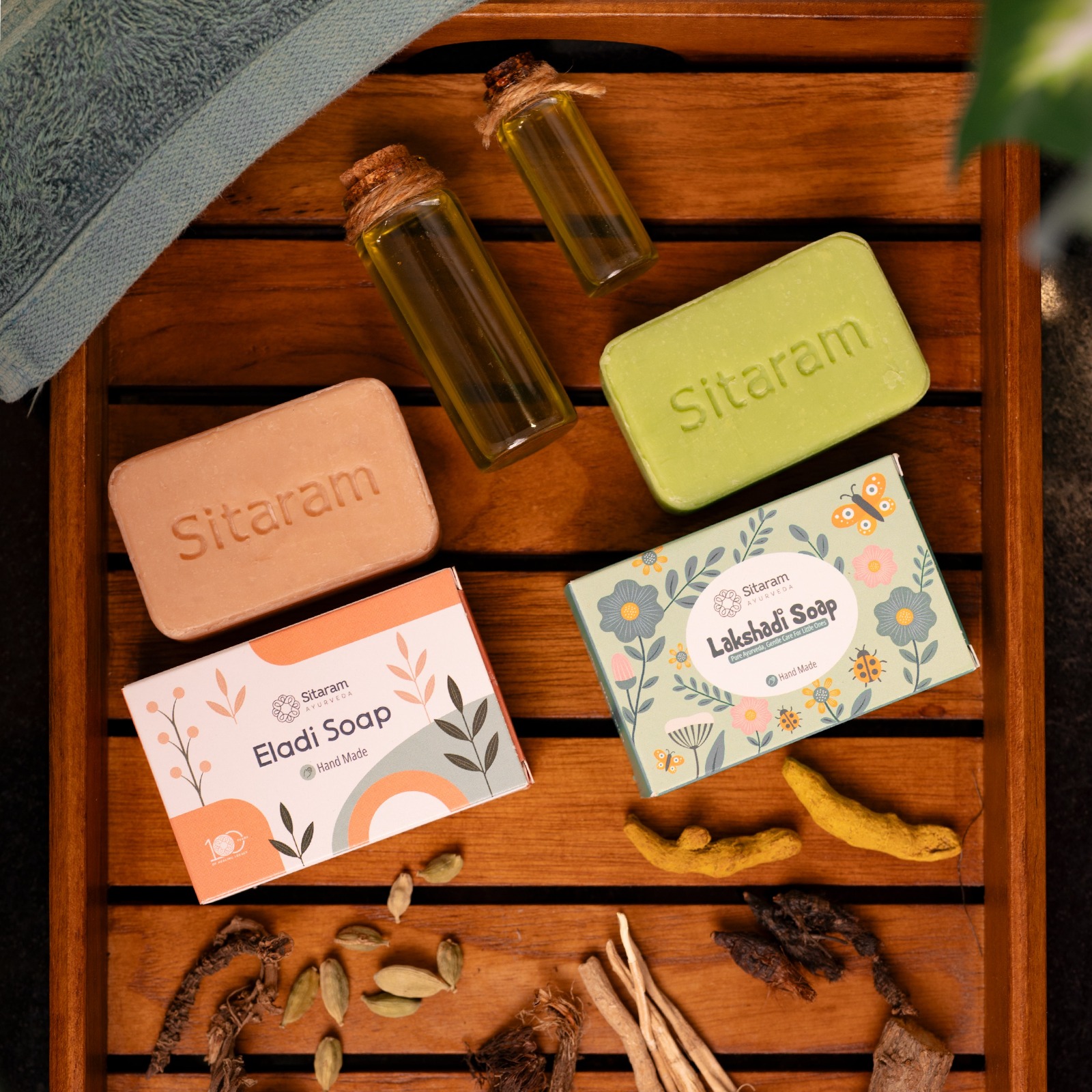
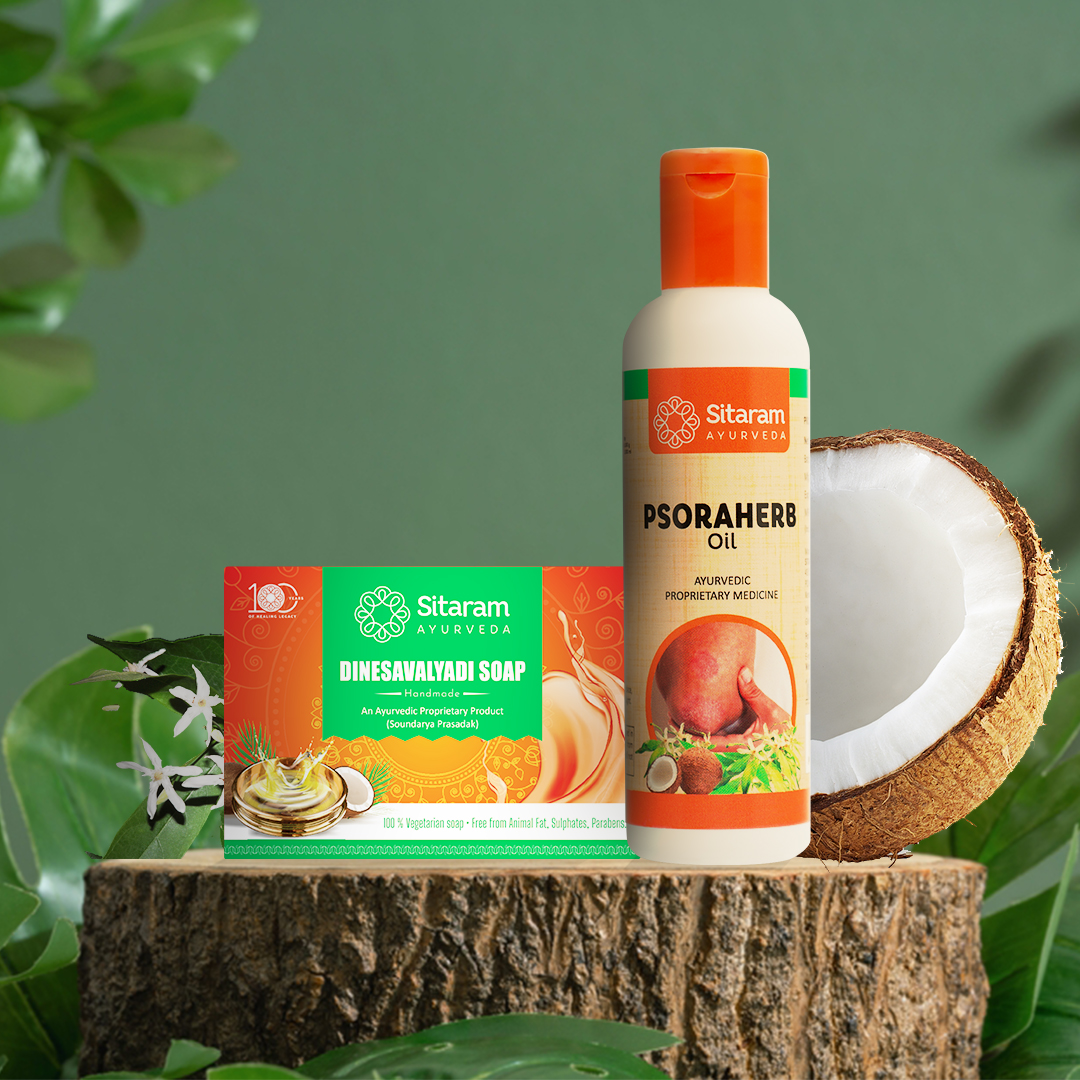
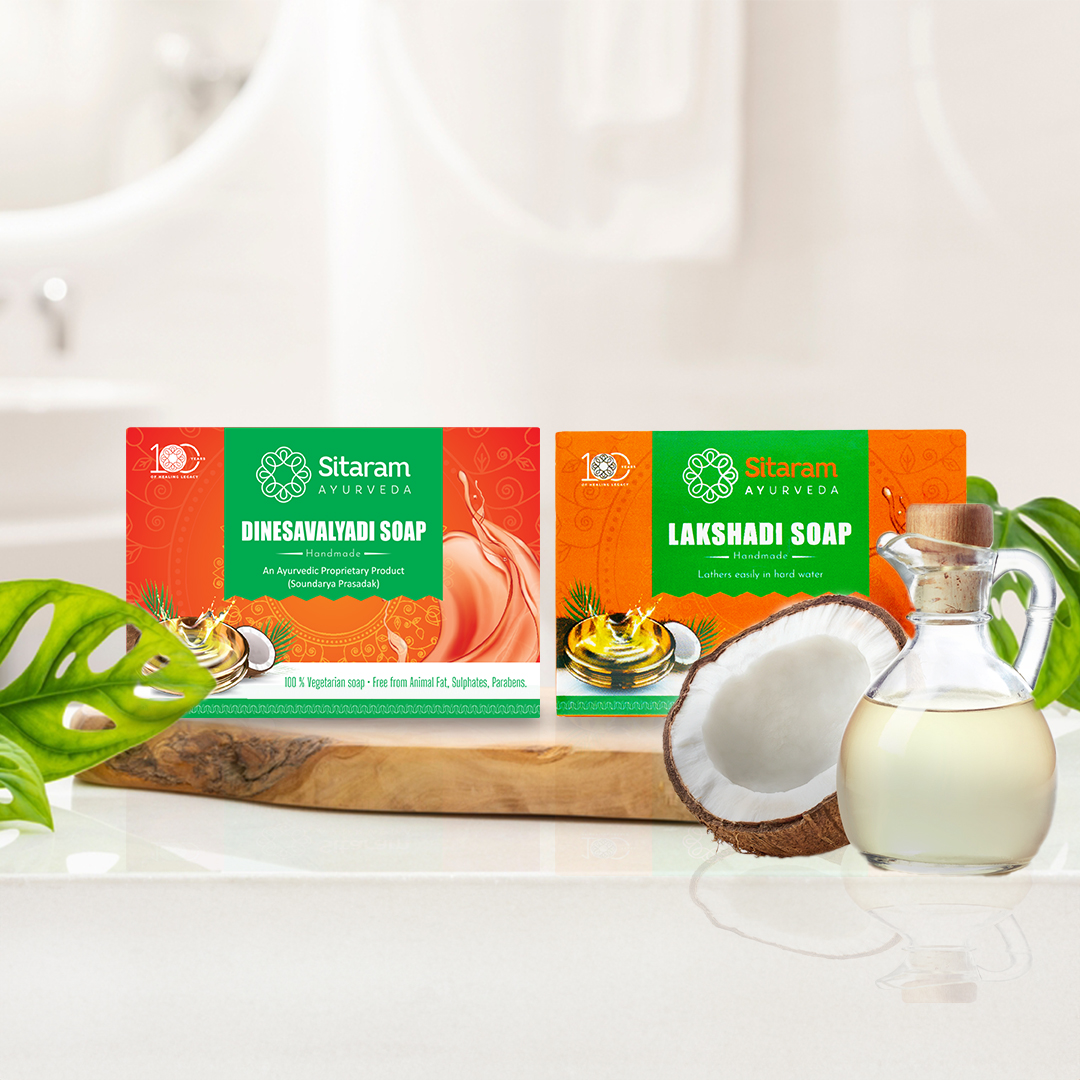
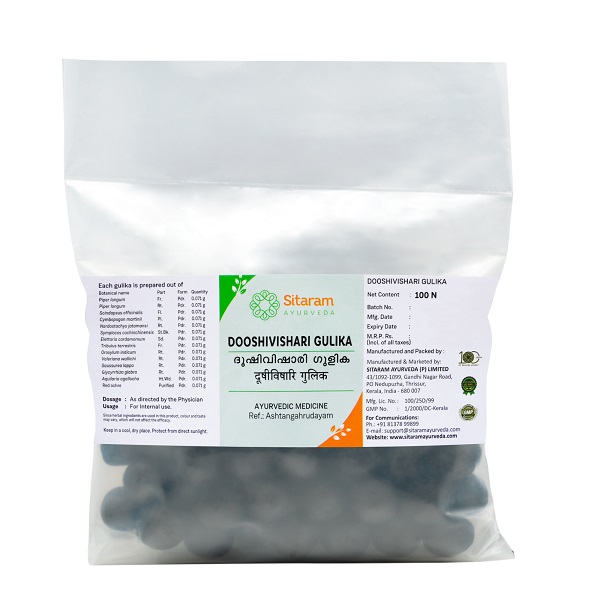
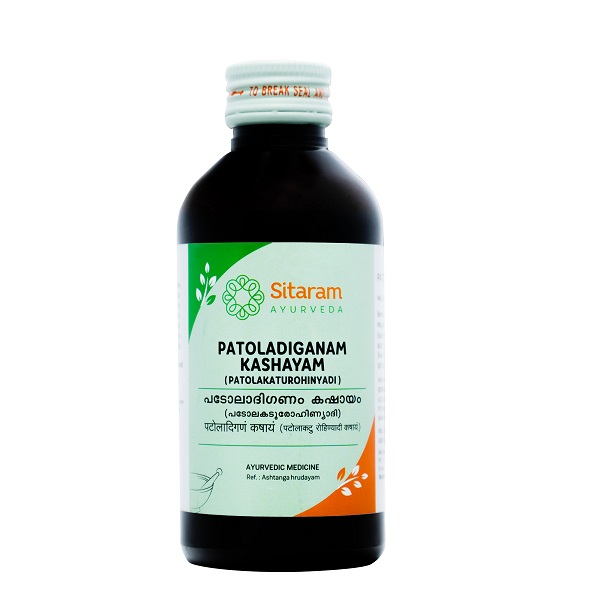
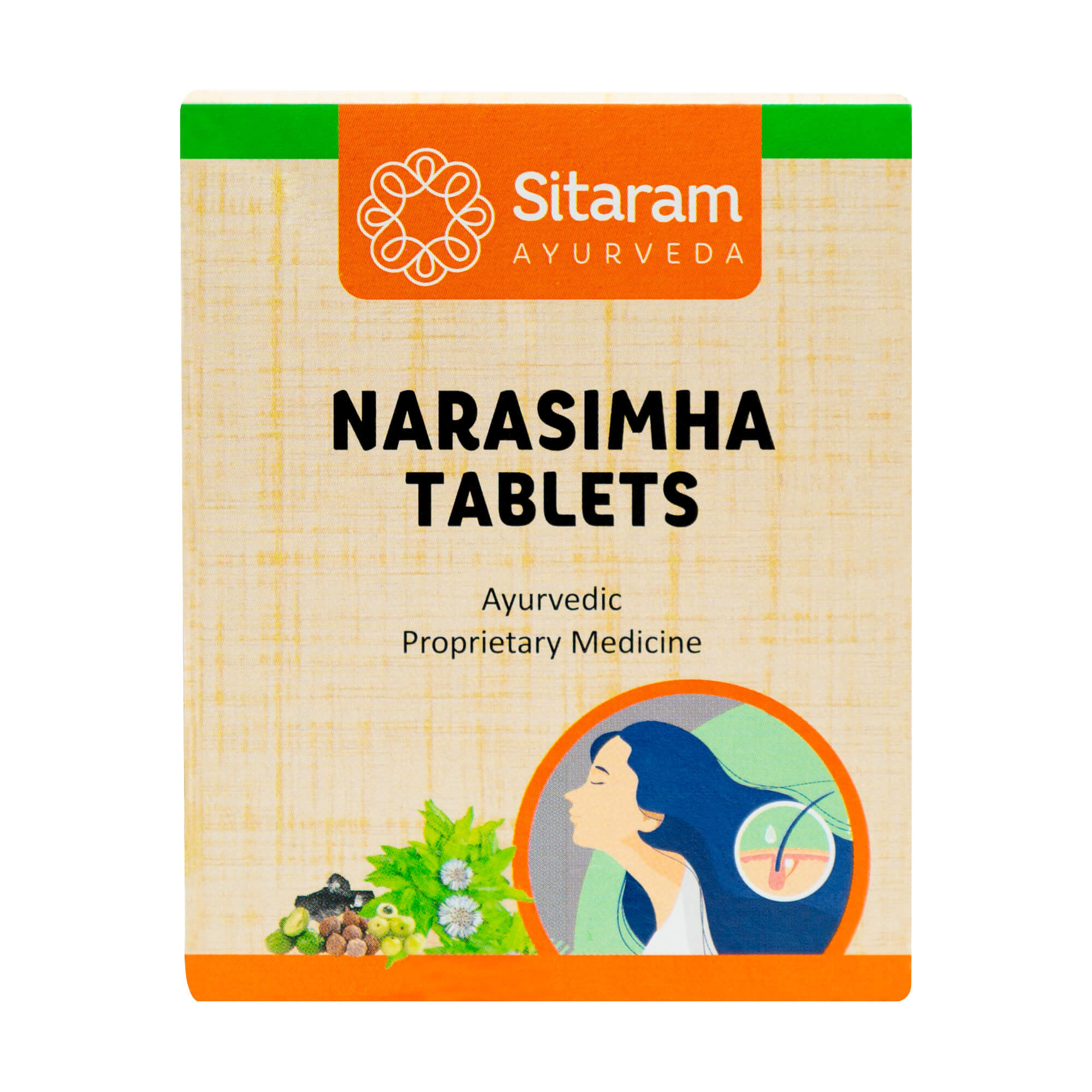
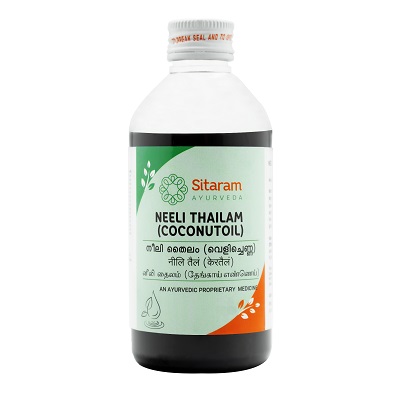
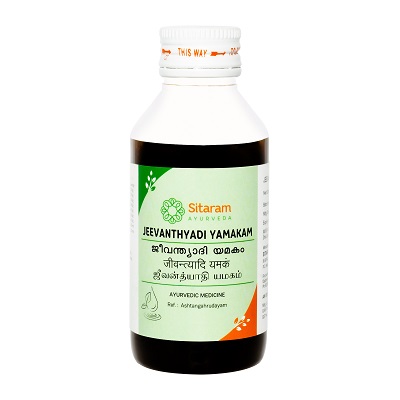
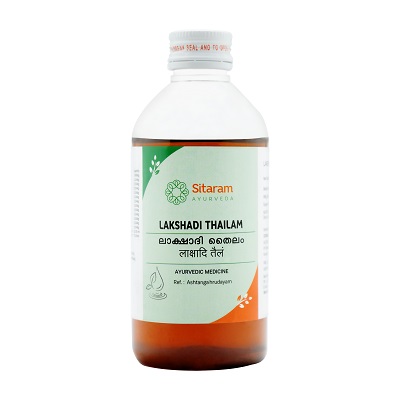
Reviews
There are no reviews yet.